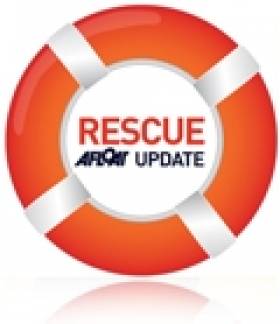Displaying items by tag: Northern Ireland Coastguard
Second Cruiser in a Week Runs Aground in Lough Erne
#RESCUE - Four people were rescued on Lough Erne yesterday after their motor cruiser ran aground in the second such incident in a week, the Belfast Telegraph reports.
All on board were retrieved by RNLI lifeboat from the 29ft cruiser, which is believed to have stranded on rocks beyond the marked channel of the lough.
No injuries or damage to the vessel were reported, with a Northern Ireland Coastguard spokesperson describing it as "a routine rescue".
The coastguard blamed low water levels in the lough caused by lack of rainfall in Co Fermanagh.
Waterways Ireland has posted a marine notice warning boat users of the risks posed by "the extended period of unseasonal dry weather" for Ireland's inland waterways.
In a similar incident last Friday, three adults and two children were rescued from a cruiser that stranded in shallow water on the lough.
The Belfast Telegraph has more on the story HERE.
























































